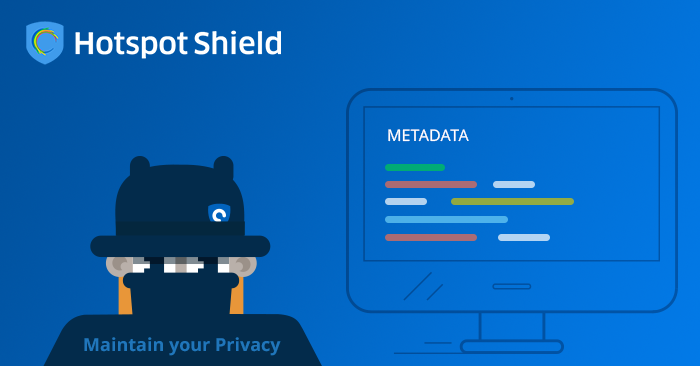How to get a Finnish IP address
The easiest way to improve your digital privacy is to switch your IP address using a VPN. We’ll …


Metadata is descriptive information that pinpoints your communications and other activities. Simply put, it’s all of the information that can be collected from your emails, phone calls, purchase histories, and the various locations you frequent. Governments across the world have been accused of obtaining and monitoring metadata in order to keep track of citizens through legal means, without search warrants, but opponents of this practice consider it a major violation of privacy.
One of the most controversial aspects of metadata collection is the vague definition of metadata. Almost any type of structured information can be lumped into the definition, but it all seems to boil down to “the data about your data.” Metadata can include IP addresses, email addresses, addresses, billing information, types of online services used, favorite websites, the date, time, and duration of a communication, downloads, and the location of your computer, phone, or other device.
On the surface, using metadata to protect citizens seems like a good idea, but it’s a huge intrusion of privacy most people are unwilling to accept. When countries collect and maintain metadata in third-party or offshore data centers on a massive scale, the security risk is unimaginable. Opponents of these types of data retention schemes, such as American whistleblower Edward Snowden, have said they’re not the public safety programs they’re being touted as, but rather they’re spying programs.
Government entities such as the National Security Agency (NSA), local police, and others have taken advantage of metadata’s uncertain legal status in order to collect data on innocent Americans. The further technology advances, the more targeted metadata becomes. For instance, social media not only reveals information such as someone’s sexual orientation, but status updates, check-ins, and GPS all make it easy to monitor your daily route and the times in which your home is unoccupied.
In the workplace, metadata is frequently and unknowingly leaked outside the office, resulting in sensitive company information being spread. Restricting or banning social media use at work is irrelevant since metadata is embedded in Microsoft Office documents, PDF files, email, images, and other files, so it can be difficult to know how to protect yourself against unnecessary sharing regardless of who you are.
When you shop, retailers keep track of every item you buy for statistical purposes. You’ve probably experienced the result of metadata when the cashier hands you coupons that are relevant to your purchase history. Retailers have even been able to correctly infer customer pregnancies based on purchasing data alone. In fact, Target was in the news in recent years for correctly guessing that a teenager in Minnesota was pregnant, and the retailer began sending her baby-related product information despite the fact that her father was unaware of her pregnancy. If this seems like a major violation of privacy, it is – and it’s not just a problem restricted to the United States.
In 2015, Australia passed controversial metadata retention laws that made it legal for the government and police to record metadata and keep it on record for two years. And the Australian government isn’t just allowed to retain this information – they’re actively doing so: every single text message, email, and phone call made in Australia will be tracked under the guise of protecting the country from organized crime and terrorism. That’s two years’ worth of personal phone calls, website visits, and other personal information collected on every single Australian citizen – all without a single warrant.
Everyone from the stores you frequent to local law enforcement will be privy to your personal information, but rather than stopping there, it goes all the way up to national security agencies and the federal government. It’s become virtually impossible to prevent metadata from being collected and maintained on a large scale, and it’s a huge ethical issue that may have unintended consequences.
In Australia where metadata retention is now legal, if you’re in family court fighting over custody of your children, your ex can subpoena personal data that can pinpoint exactly where you are at any given moment and how much you spend on nonessentials. Imagine having every aspect of your daily life scrutinized in order to place blame on you as an individual–and we’re only just beginning to speculate about the consequences.
Thankfully, regardless of whether your government has deemed metadata retention legal or not, there are ways to prevent it. Using VPN/proxy servers is a popular way to conceal your identity and spoof geo-locations. Masking your IP address is a good start since you’re essentially creating a middleman that doesn’t exist. Hotspot Shield is designed to keep all of your information private and secure while providing you with unrestricted access to content, making it an ideal choice for internet users who want to avoid further collection of their personal information.
In addition to blocking your IP address, Hotspot Shield provides you with a completely anonymous surfing experience and enhanced online security that protects passwords, instant messages, and financial transactions–and best of all, the base version is free (ad-supported)!
Protect your privacy by taking steps to prevent metadata retention schemes from obtaining your information. Download Hotspot Shield today.
